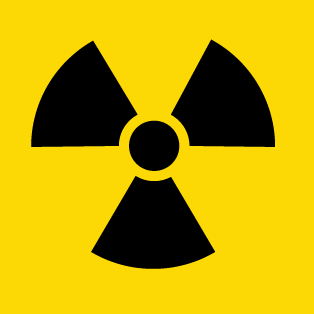Depending on where you are in your prostate cancer journey, you may have many treatment choices, and now new ones may be available to you. Learning about your options will help you make the right decisions. Be informed and ask questions.
Take Control By:
- Asking questions
- Doing your own research
- Seeking a second opinion
- Finding out how different treatments can affect your health and life
- Knowing you can make health decisions that align with your lifestyle
Knowing your health status is also important for discussions with your healthcare team. The Prostate Conditions Education Council (PCEC) provides the “Know Your Numbers Tracker Card,” which is a very helpful wallet-size card that allows you to track multiple test results over an extended period of time. Find out how to receive the “Know Your Numbers Tracker Card.”
This is your life. Make the choices that are right for you.
Treatment Options for Prostate Cancer
Localized Prostate Cancer
Prostate cancer that has not spread beyond the prostate.
ACTIVE SURVEILLANCE
A treatment plan that involves closely monitoring the cancer but not giving any treatment unless there are changes in test results that show the condition is getting worse. Certain exams, such as digital rectal exam (DRE), prostate-specific antigen (PSA) blood tests, and sometimes biopsies, are done on a regular schedule.
WATCHFUL WAITING
Watchful waiting may be an option for older men and those with other serious or life-threatening illnesses. With watchful waiting, routine PSA tests, DRE, and biopsies are not usually performed. If a man develops symptoms from the prostate cancer, then treatment may be recommended to relieve those symptoms.
SURGERY
Surgical options may include a radical prostatectomy, which involves removing the entire prostate and the surrounding tissue.
MINIMALLY INVASIVE PROCEDURE
A minimally invasive procedure such as robotic/laparoscopic surgery, cryosurgery (freezing and destroying the prostate tissue), or high-intensity focused ultrasound may be an option.
RADIATION THERAPY
Uses high-energy radiation to kill cancer cells. Radiation can be accompanied by ADT (androgen deprivation therapy).
Biochemical Recurrence or PSA Failure
A rise in PSA levels in the blood after surgery or radiation.
RADIATION THERAPY
Uses high-energy radiation to kill cancer cells. Radiation can be accompanied by ADT.
HORMONE
THERAPY
ANDROGEN DEPRIVATION THERAPY (ADT)
A type of hormone therapy that is given to suppress or block the production or action of male hormones, primarily testosterone. There is a surgical option (orchiectomy) and several medical options.
ACTIVE SURVEILLANCE
A treatment plan that involves closely monitoring the cancer but not giving any treatment unless there are changes in test results that show the condition is getting worse. Certain exams, such as digital rectal exam (DRE), prostate-specific antigen (PSA) blood tests, and sometimes biopsies, are done on a regular schedule.
SURGERY
Surgical options may include a radical prostatectomy, which involves removing the entire prostate and the surrounding tissue.
Non-Metastatic Castration-Sensitive Prostate Cancer (nmCSPC)
Prostate cancer that has not spread to other parts of the body and still responds to medical or surgical treatments that lower testosterone
HORMONE
THERAPY
ANDROGEN DEPRIVATION THERAPY (ADT)
A type of hormone therapy that is given to suppress or block the production or action of male hormones, primarily testosterone. There is a surgical option (orchiectomy) and several medical options.
OBSERVATION
An option where a doctor would continue to gather information about the patient's prostate cancer and would not initiate treatment unless symptoms, spread (metastasis), and/or recurrence of the prostate cancer would require it.
Metastatic Castration-Sensitive Prostate Cancer (mCSPC)
Prostate cancer that has spread to other parts of the body and still responds to medical or surgical treatments that lower testosterone.
HORMONE
THERAPY
ANDROGEN DEPRIVATION THERAPY (ADT)
A type of hormone therapy that is given to suppress or block the production or action of male hormones, primarily testosterone. There is a surgical option (orchiectomy) and several medical options.
ANTI-ANDROGENS
Drugs that prevent androgens from binding to androgen receptors, which are proteins found in prostate cells and in cells of other tissues in the body.
CHEMOTHERAPY
Uses medication to kill cancer cells.
Non-Metastatic Castration-Resistant Prostate Cancer (nmCRPC)
Prostate cancer that has not spread to other parts of the body and no longer responds to medical or surgical treatments that lower testosterone.
HORMONE
THERAPY
ANDROGEN DEPRIVATION THERAPY (ADT)
A type of hormone therapy that is given to suppress or block the production or action of male hormones, primarily testosterone. There is a surgical option (orchiectomy) and several medical options.
ANTI-ANDROGENS
Drugs that prevent androgens from binding to androgen receptors, which are proteins found in prostate cells and in cells of other tissues in the body.
OBSERVATION
An option where a doctor would continue to gather information about the patient's prostate cancer and would not initiate treatment unless symptoms, spread (metastasis), and/or recurrence of the prostate cancer would require it.
Metastatic Castration-Resistant Prostate Cancer (mCRPC)
Prostate cancer that has spread to other parts of the body and no longer responds to medical or surgical treatments that lower testosterone.
HORMONE
THERAPY
ANDROGEN DEPRIVATION THERAPY (ADT)
A type of hormone therapy that is given to suppress or block the production or action of male hormones, primarily testosterone. There is a surgical option (orchiectomy) and several medical options.
ANTI-ANDROGENS
Drugs that prevent androgens from binding to androgen receptors, which are proteins found in prostate cells and in cells of other tissues in the body.
IMMUNOTHERAPY
Treatment to boost or restore the ability of the immune system to fight cancer.
CHEMOTHERAPY
Uses medication to kill cancer cells.
RADIOPHARMACEUTICALS
Uses drugs with radioactive elements to treat cancer that has moved to bone and has been shown to help with pain of cancer in the bone. Radiopharmaceuticals, which are sometimes combined with beam radiation, are injected into a vein and then settle in areas of bone where cells turn over.
OBSERVATION
An option where a doctor would continue to gather information about the patient's prostate cancer and would not initiate treatment unless symptoms, spread (metastasis), and/or recurrence of the prostate cancer would require it.
CLINICAL TRIAL
A type of study that tests how well medical approaches work in people.
PALLIATIVE CARE
A type of care given to patients with a serious, life-threatening, and/or terminal illness in order to improve their quality of life.












627f.png?itok=PoTlGU5W)